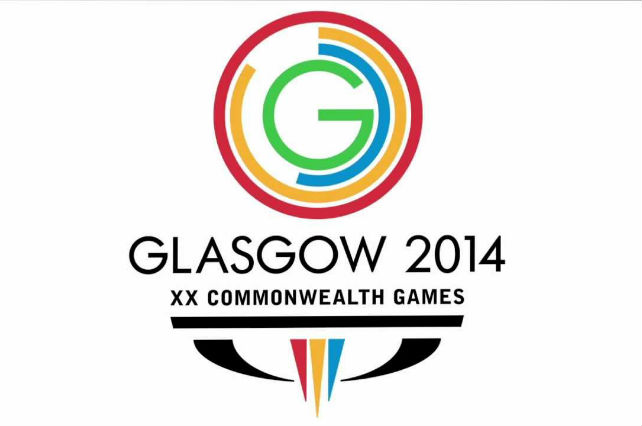Sport has faced no shortage of troubles of late. Revelations and allegations of misdeeds continue to blight many major sports. FIFA’s governance is still under the spotlight, match-fixing allegations in tennis have come to the fore, Qatar’s approach to labour relations remains highly contentious, and the systematic doping uncovered in athletics has shaken the IAAF to its core.
Nevertheless, I still believe sport can inspire both on and off the field of play. And there are real signs of that occurring right now.
2014 saw the Commonwealth Games take place in my home city of Glasgow. I was lucky enough to work for Glasgow 2014, the Organising Committee, for nearly three and a half years.
Early in 2013 I took a proposal to senior management for us to adopt a corporate approach to human rights.
Barriers
Coming from a human rights background and working on policy and public affairs matters for the Organising Committee, I was convinced that a rights-based approach was the way forward for the Games. So too were some of my colleagues. However, perhaps unsurprisingly, there was significant caution and uncertainty. Mega-sporting events, based in large part on a host city contract and a manual, have many common elements – and a human rights policy is not one of them.
So there was a fear of the unknown.
Equally, there was a sense that we could be creating a rod for our collective back, a hostage to fortune; what if we failed to live up to the standards we set for ourselves? Organising Committees are subject to huge amounts of scrutiny and, generally speaking, voluntarily offering up a stick with which you can be beaten is not recommended.
Cost was also a factor. Doing the right thing often has financial implications, whether that’s in terms of worker pay levels, choosing appropriate suppliers or dedicating resource to new commitments.
And then there was timing: 2013 was late in the lifecycle of an Organising Committee preparing for its event in 2014. What could we meaningfully do in that relatively short period of time?
These were all entirely reasonable concerns, and producing an approach that the whole organisation could back meant they had to be allayed. The key to this was Glasgow’s strong and universally-agreed commitment to developing a real legacy from the Games. Glasgow is a city that cares about people, so much so that its marketing strapline is ‘People Make Glasgow’. Games legacy planning had a strong social and economic dimension – contributing to employment, health, culture, the environment, wellbeing and more – which provided the local context.
Further afield, and although they didn’t adopt a human rights policy, we had the example of London 2012, particularly the Commission for a Sustainable London 2012. Sustainable procurement was a massive part of the London approach and hugely influential in terms of our own work.
The approach also needed to make sense in terms of the Commonwealth Games movement as a whole. So we adopted the Commonwealth Games Federation’s values – humanity, equality and destiny – to provide an appreciable structure. Internationally, I linked the argument to the UN Guiding Principles and our moral and legal obligations as a prominent and influential business.
Finally, I had support from the top of the organisation: Chief Executive David Grevemberg immediately recognised the positive impact pursuing a rights agenda could have for the organisation as well as ultimately being the right thing to do.
The first of its kind
Working with colleagues from across the organisation – sustainability, procurement, merchandising, legal, communications, accessibility, venues, security, engagement & legacy, workforce and more – as well as with various external partners, such as Amnesty Scotland, the Scottish Human Rights Commission and IHRB, we eventually published the Glasgow 2014 Approach to Human Rights. As it turns out this was the first (and, at the time of writing, still only) mega-sporting event human rights policy.
We didn’t widely publicise the policy for a few reasons. Apart from anything else, at the time we published it we had no idea it was a world first. Equally, we knew it wasn’t a panacea; it was important, but it was neither revolutionary in content nor a silver bullet. It was a long way from perfect and if I could do it over again I’d do a lot of things differently. In fact, a large part of what it did was simply bring together many strands of existing positive work into a coherent narrative; the major innovation was simply to explicitly recognise our human rights obligations and responsibilities and frame our work in a rights context.
But it was a start, and hopefully the post-Games report helped to reinforce our commitment and to sustain some of the momentum. In particular, I hoped that the basic act of publishing the policy at all might give the human rights agenda a solid toe-hold in the world of mega-sporting events.
Although it might not seem like it from all that we’ve seen elsewhere, there’s some evidence that that has happened. The Commonwealth Games Federation, under David Grevemberg’s leadership, is leading the way. Its Transformation 2022 agenda talks of the Federation’s “strong commitment to, and respect [for], human rights” and commits to developing an “industry-leading Code of Ethics”, incorporating the promotion of human rights.
Right now, the Glasgow 2014 Approach is a drop in the sporting ocean, but it’s still tremendously important. Most contemporary international sports governance doesn’t offer a great deal of hope, but Glasgow 2014 proved that an ethical approach is possible. Now it’s up to the Commonwealth Games movement to demonstrate where it can be taken.





























How should businesses respond to an age of conflict and uncertainty?
As 2024 began, European Commission President Ursula von der Leyen aptly summed up our deeply worrying collective moment. As she put it, speaking at the annual World Economic Forum in Switzerland, we are moving through “an era of conflict and...
26 March 2024 | Commentary
Commentary by Scott Jerbi, Senior Advisor, Policy & Outreach, IHRB